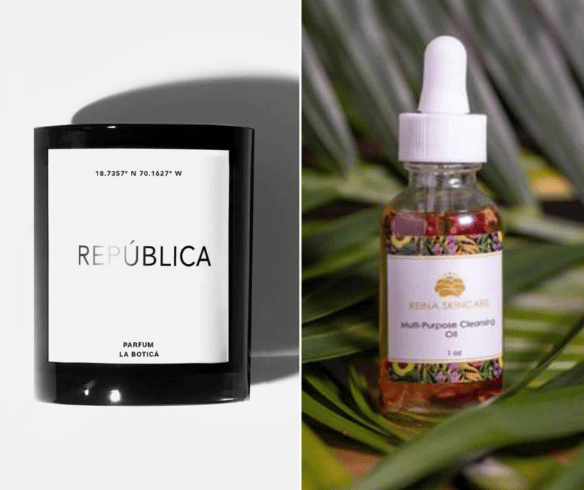By Rebecca Deczynski, INC.com
Someone always has to go first–but occupying that role isn’t necessarily easy.
While Black women are the fastest-growing demographic of entrepreneurs in the United States, they remain underrepresented in many industries. And especially when it comes to securing capital, a lack of previous representation in an industry can be a barrier.
“During the time I was building my business, I was generating tons of money, but I just couldn’t get funded,” says Robin Wilson, founder of home textile brand Clean Design Home (originally called Robin Wilson Home). “I remember going to a seed capital group and showing how successful my business was, and a woman said, ‘I don’t know any brands like yours–I’m not trying to be racist or anything.’ I said, ‘I can’t really unzip myself and become something I’m not.’ So I was out.” After years of bootstrapping, Wilson became the first Black American female founder of a global, licensed hypoallergenic textile brand, and now has several successful companies under her holding company, A Blue Egg Corporation.
Wilson is just one example of the Black women entrepreneurs succeeding in spite of systemic barriers. Inc. spoke with her and two others to find out their best takeaways for strategizing, connecting with investors who get you, and achieving “firsts” in their respective industries.
Make the connections you can
By day, Rada Griffin is a senior software engineer for NASA, working on a project that will send the first woman to the moon in 2024. But in her off hours, she’s the owner of Anissa Wakefield Wines and Alabama’s first certified Black female winemaker. In 2006, the Huntsville, Alabama-based entrepreneur started a catering business on the side and quickly developed an interest in wine. “Back then, you really had to know someone in the winemaking business to get some insight about it,” she says. After years of self-study, she launched her business in 2017, releasing her first vintage of wine the following year. She became a certified winemaker in 2021, after she completed an online program through Cornell’s School of Hotel Administration.
Of the more than 8,000 wineries in the United States, about one-10th of 1 percent are Black-owned, Phil Long, president of the Association of African American Vintners, told Bloomberg in 2020. Finding people who are open-minded to diversity and inclusion, Griffin says, has been key to her success. She connected with a few other Black women winemakers working in Napa, where she produces her wine. “I’ve come across some really, really great people who have kind of taken me under their wing,” she says. “If you don’t reach out to people, if you don’t go talk to people and understand what it is that you’re doing or what you need to do better, you’ll keep making the same mistakes.” Griffin says that the support she’s gained from her network has made all the difference–she turns to her fellow winemakers for advice and inspiration.
Turn “no” into a learning opportunity
Tiffany Mason, founder of Harlem Pilates–the first Pilates studio in Harlem–recently won a $30,000 grant from Squarespace to put toward her business. But fundraising previously wasn’t easy. For that reason, she bootstrapped her business, running lessons from her apartment for about two years before she started looking for a brick-and-mortar space in 2019. After approaching a few banks, she got approved for a small personal loan, which allowed her to take the next step in opening her business.
“I got a lot of noes,” she says. “Eventually, you understand that noes are feedback to help you get better. It’s important to take those responses and learn how to refine your messaging.” On her part, Mason says that early noes taught her to become more confident in her pitch, being “loud and proud” about owning the only Pilates studio in her neighborhood. While trying to secure her initial bank loan, Mason says that she took a more passive approach, and didn’t really emphasize how significant her business was for her neighborhood; when she applied for Squarespace’s grant, she went in the opposite direction–to great success.
Understand the power of branding
Wilson started her career in the corporate world at the executive search firm Heidrick & Struggles. When the company went public in 1999, she gained the financial opportunity to pursue her real passion–so, she went to NYU to get her master’s in real estate finance and launched her business, Robin Wilson Home. Over the years, she’s faced ups and downs, and particularly had a hard time garnering VC interest. “As a woman and a person of color, there’s real fiscal inequality,” she says.
But in the summer of 2020, she saw sales of her 2015 book Clean Design tick up, amid increased calls to support Black-owned businesses. Around that time, she had a conversation with an old business school professor, who advised her to change the name of her business to help expand her appeal.
Click here to read the full article on Inc. Com.




